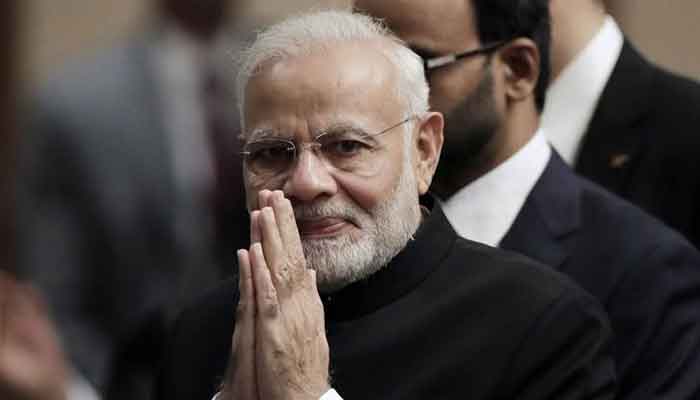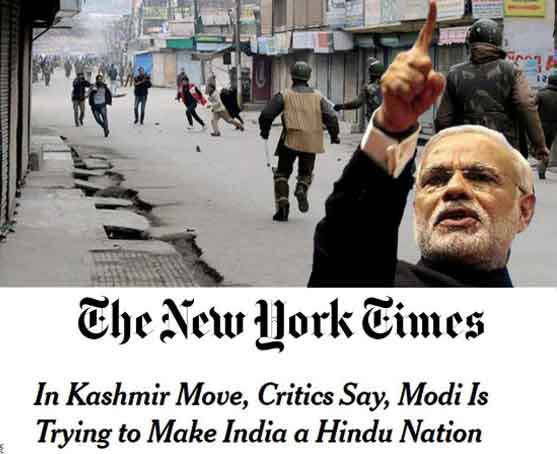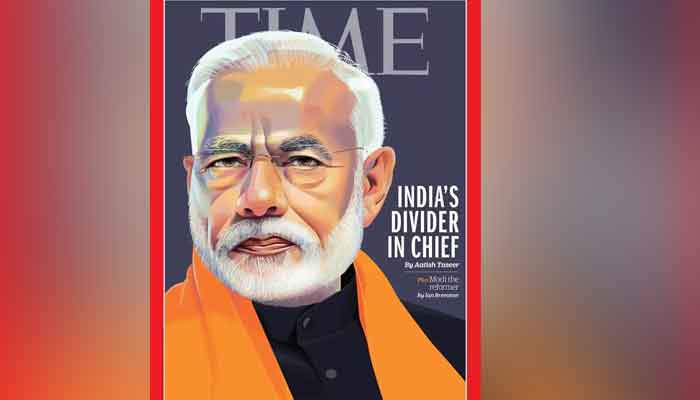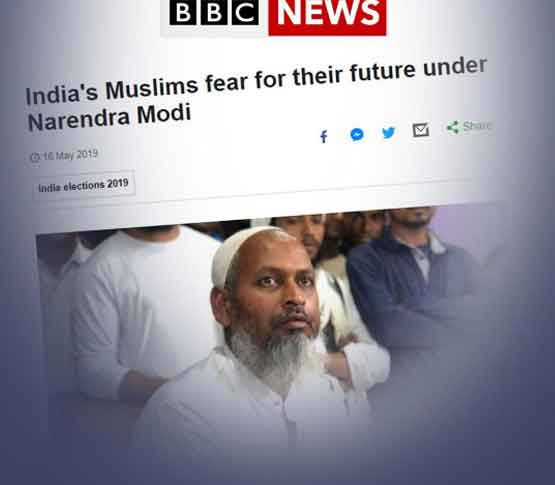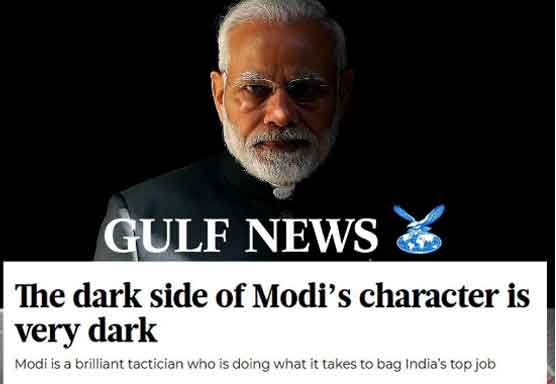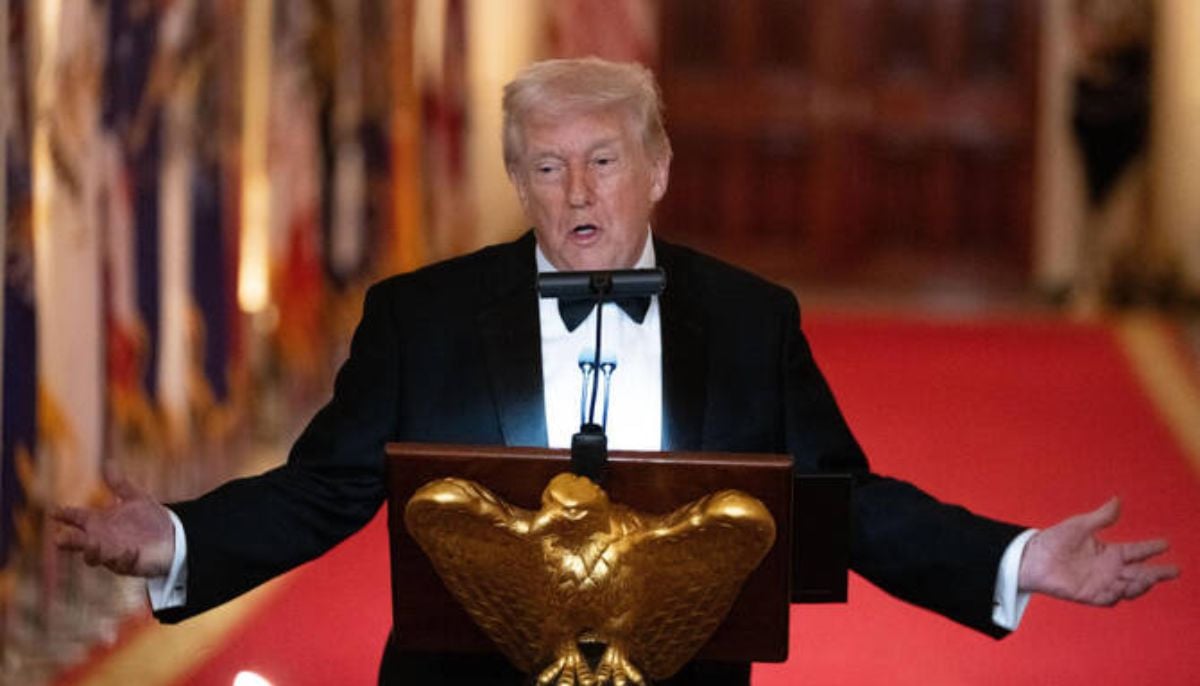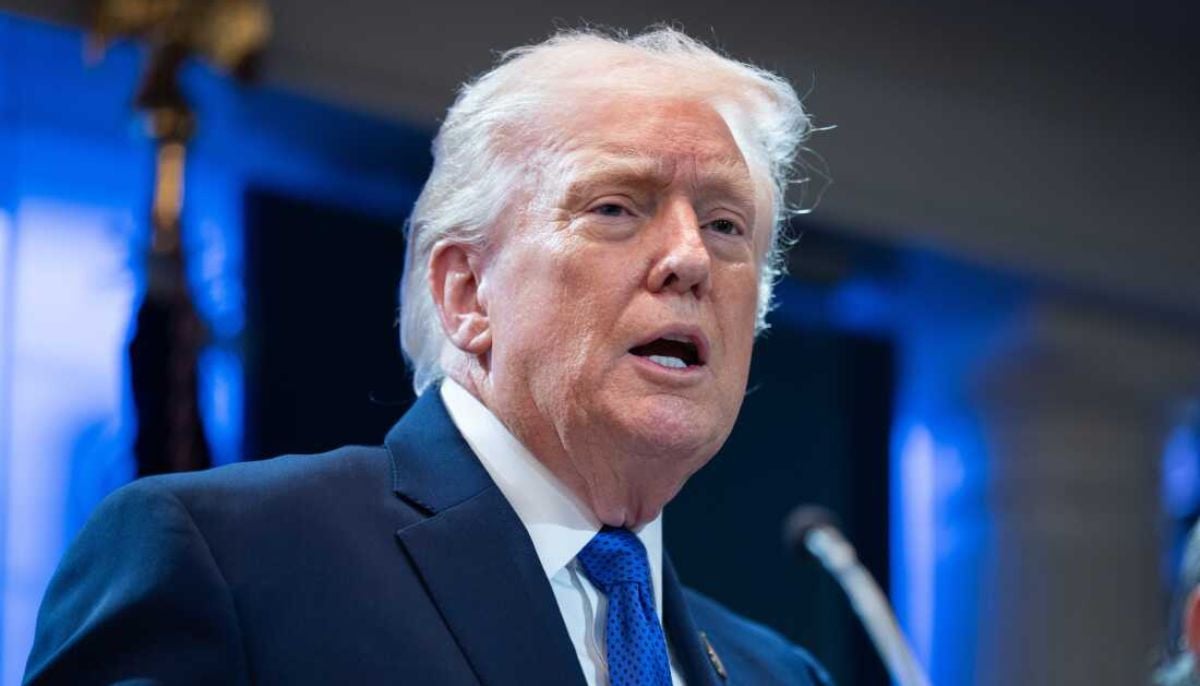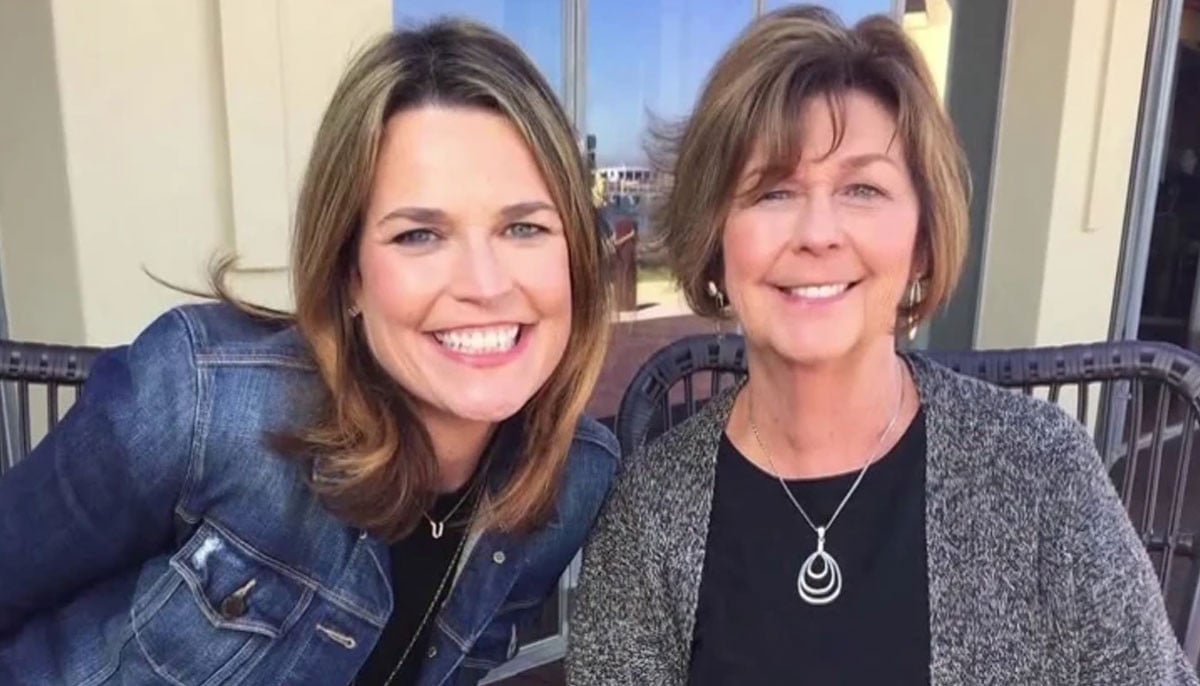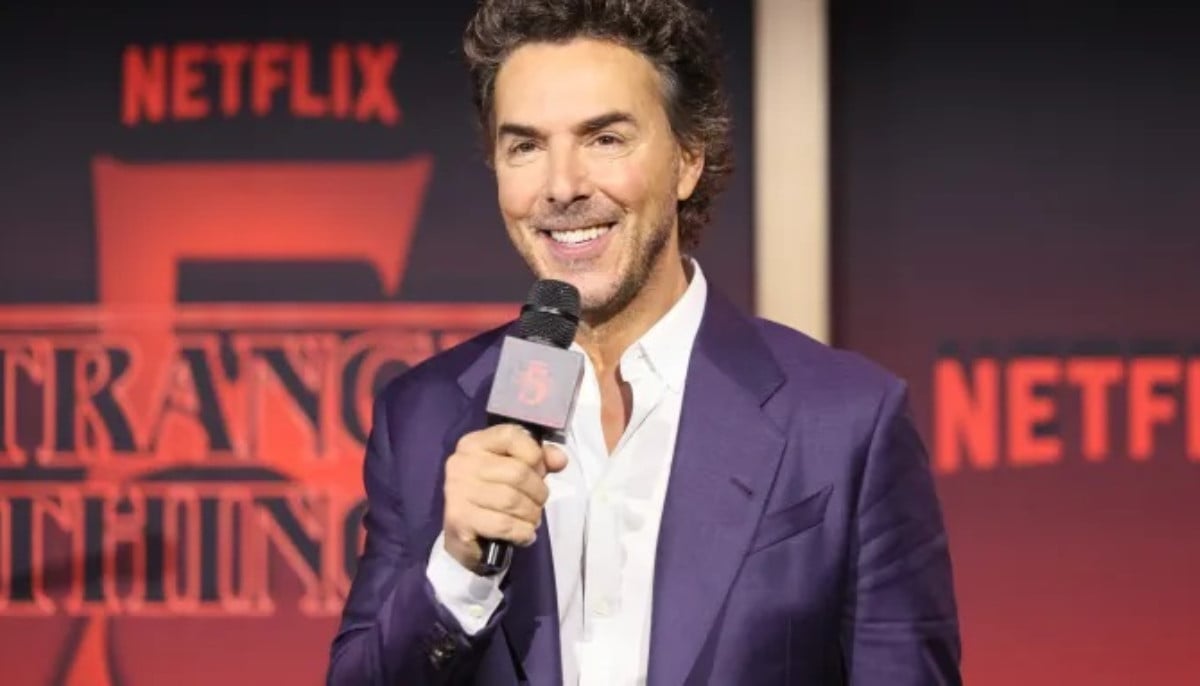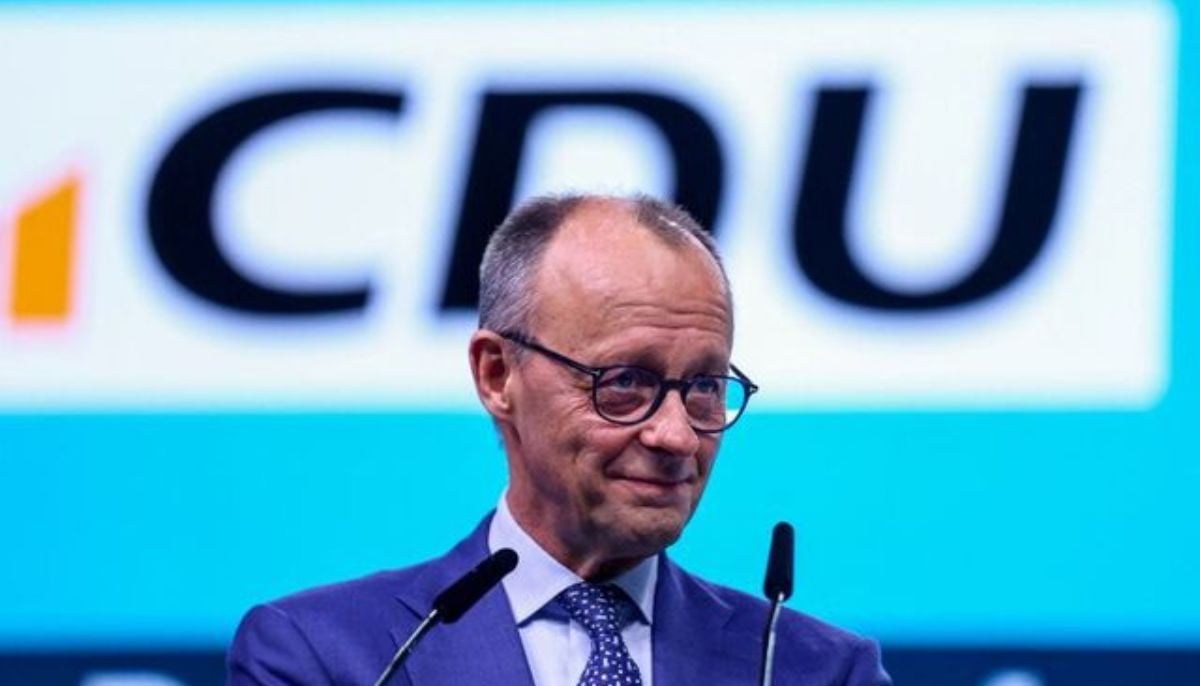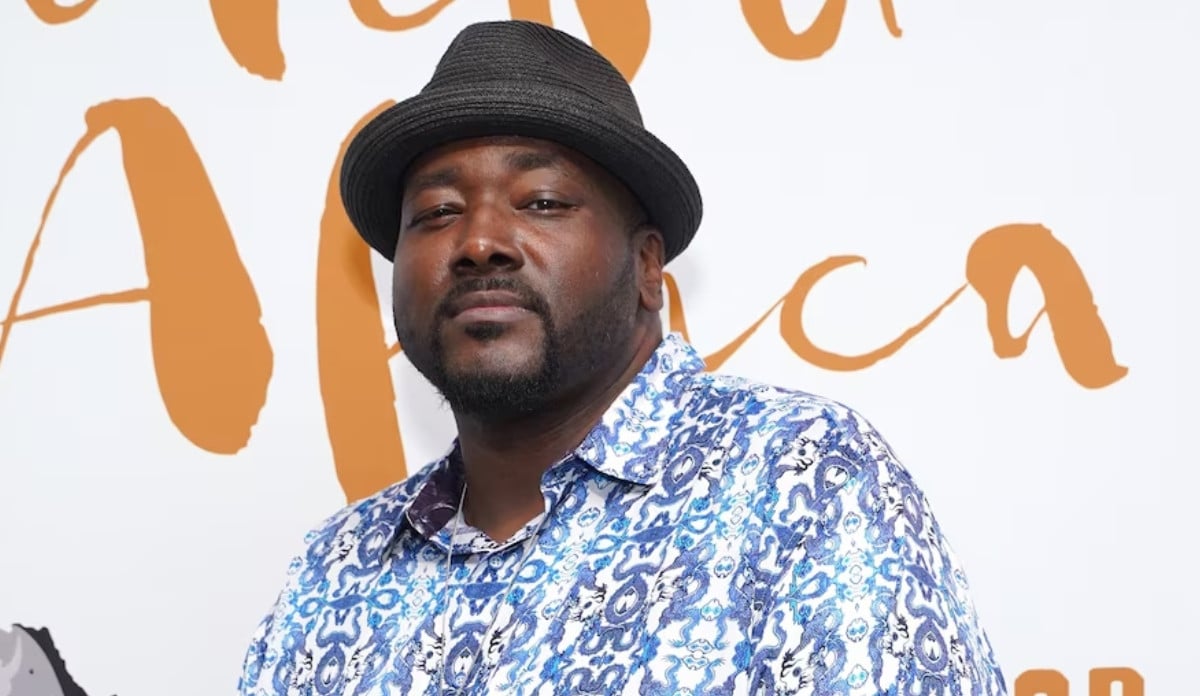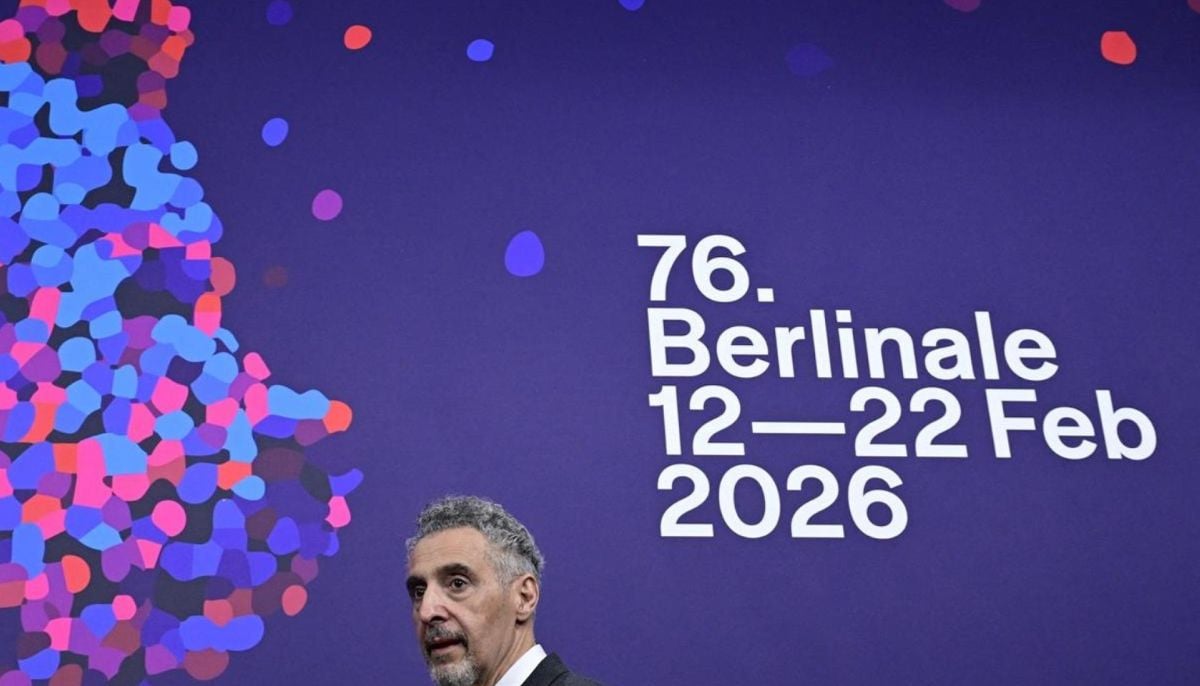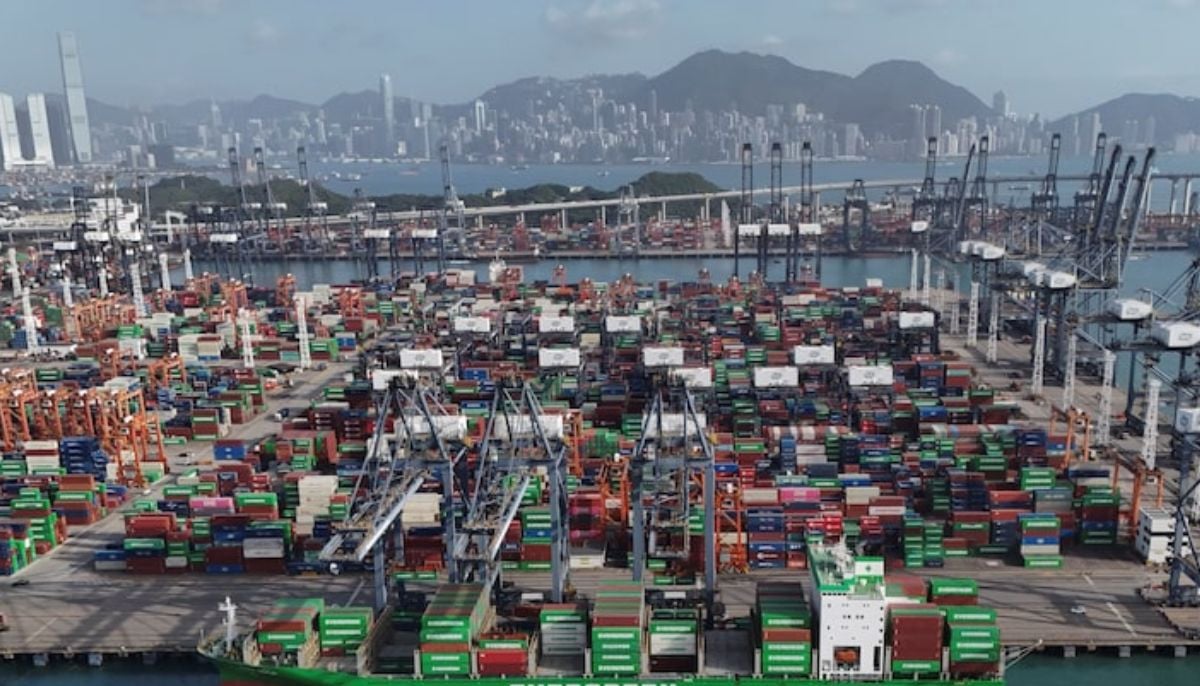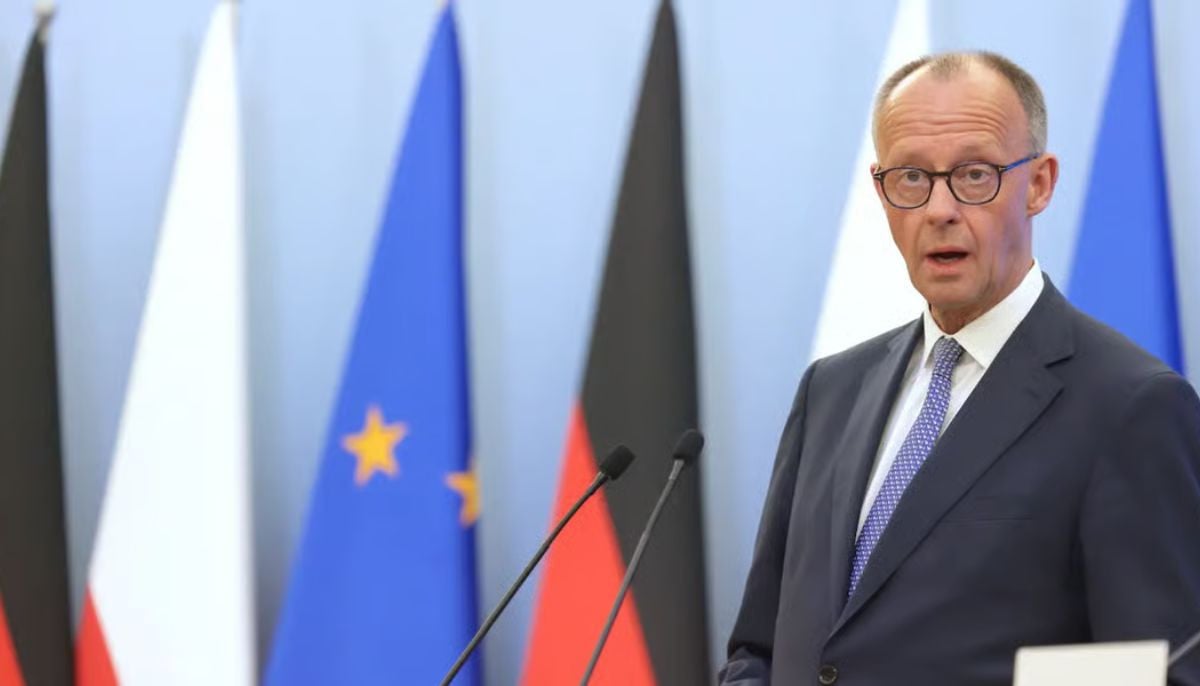Here is what international media says about Modi
Here is what international media says about Modi
Indian Muslims, secularists and liberals had their worst fears realized when Indian government last week revoked Kashmir's special status.
On August 5, Prime Minister Modi’s BJP government scrapped Article 370, which granted Kashmir special status, after deploying thousands of additional troops in Muslim majority region with internet, landline services severed and turning the picturesque valley into the world's largest jail.
Since then Kashmiris are living under curfew, with almost all the political leadership placed under arrest.
Pakistan Prime Minister Imran Khan lambasted the international community for failing to challenge India and said turning a blind eye to the spread of Indian Hindu nationalism was the same as appeasing Hitler.
Modi, a lifelong member of Rashtriya Swayamsevak Sangh (RSS), was accused of mass murder in Gujarat when he was chief minister of the state.
And when he was chosen by Bharatiya Janata Party (BJP) as a candidate for prime minister, saner voices expressed fears that he would prove to be divisive leader.
Here, we look at some international media reports voicing concerns about Modi:
In a feature titled “India’s Muslims quiver in the new dawn of an emboldened Narendra Modi,” Guardian wrote about how Muslims have been denied the right to worship.
It said bitter campaigns have been waged against Muslims praying in public spaces because mosques have no capacity or are too far away. Sanctioned prayer spaces have been gradually whittled down to just over three dozen after protests by Hindu organisations.
The Guardian wrote that in the past five years violence against Muslims has increased, including at least 36 killings by “cow vigilantes” of cattle farmers and traders accused – usually spuriously – of harming the revered animals.
It said Modi’s rule emboldened the extremists and created a culture where religious chauvinism and impunity can flourish.
“It’s the Muslim vegetable vendor who is suddenly beaten up, it’s when Muslim families say they are worried about taking lunch boxes because they don’t know when they’re going to be accused of carrying beef,” the Guardian quoted a Muslim activist as saying.
Reporting on the developments in Kashmir, The New York Times published an article on August 6 titled “In Kashmir move, critics say, Modi is trying to make India a Hindu nation”.
It said the decision was an attack at the heart of India’s secular identity and a historic blow to a democracy that celebrates itself as one of the most free and stable in the developing world.
The NYT also cited the mission statement of RSS on Kashmir which said ““The State of Jammu & Kashmir, with its oppressive Muslim-majority character, has been a headache for our country ever since independence.”.
“This has long been a fear about Mr Modi, who won a landslide reelection in May. Yes, he has pushed development. He has reduced high-level corruption. He has envisioned and completed far-reaching social projects, such as building 100 million toilets in five years, at the rate of about 40 per minute.
But Mr Modi rose through the ranks of the RSS, and his critics have always been suspicious that, beyond modernising India, he wants to change its fundamental character as well,” the newspaper wrote.
It said during Modi’s first term, which began in 2014, government bodies began rewriting history books, lopping out sections on Muslim rulers. They pushed extremist Hindu priorities, like an effort to locate a mystical river that features prominently in Hindu scriptures. Critics called it pseudoscience, saying it was akin to using public dollars to study mermaids.
Similarly, the world’s most popular magazine Times featured Narendra Modi on its cover as India’s Divider in Chief and wrote that "Under Modi govt, minorities of every stripe – from liberals and lower castes to Muslims and Christians – have come under assault, India is "more divided than ever.
Highlighting the difficulties facing the Muslims of Indian under Modi, BBC reported before 2019 election that the world's largest democracy is becoming dangerously intolerant under the Modi’s Hindu nationalist Bharatiya Janata Party (BJP).
Citing a February 2019 report from Human Rights Watch , the BBC reported between May 2015 and December 2018, at least 44 people - 36 of them Muslims - were killed across 12 Indian states. Around 280 people were injured in more than 100 incidents across 20 states over the same period.
In the run up to 2014 Indian election, Edwarde Luce shed light on lurking danger in a Gulf News article by arguing that Modi might have improved things on administrative front in Gujarat but the massacre of Muslims under his watch and his inaction over the bloodbath is the proof that his dark side very dark indeed.
“Modi has killed the spirit of Indian secularism in Gujarat. The region of Mohandas Gandhi’s birth has become a shrine to Nathuram Godse, the Hindu nationalist who assassinated him in 1948,” Luce wrote.
-
Sarah Pidgeon explains key to portraying Carolyn Bessette Kennedy
-
Inside Nicole 'Snooki' Polizzi's 'private' marriage with husband Jionni LaValle amid health scare
-
Germany’s ruling coalition backs social media ban for children under 14
-
Quinton Aaron reveals why he does not want to speak to wife Margarita ever again
-
Why Mikaela Shiffrin celebrated Olympic Gold with Taylor Swift song?
-
Political tensions steal spotlight at Berlin Film Festival closing ceremony
-
Hong Kong touts stability,unique trade advantages as Trump’s global tariff sparks market volatility
-
Friedrich Merz heads to China for high stakes talks in an effort to reset strained trade relations
